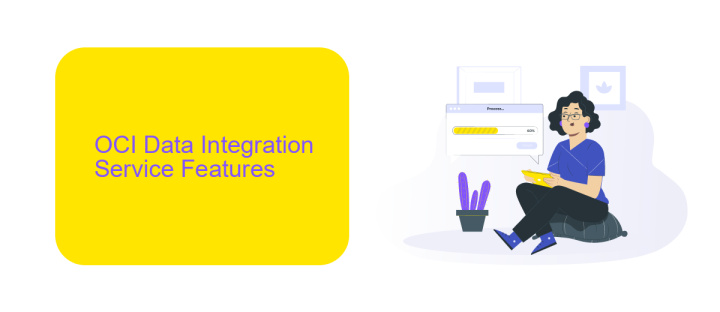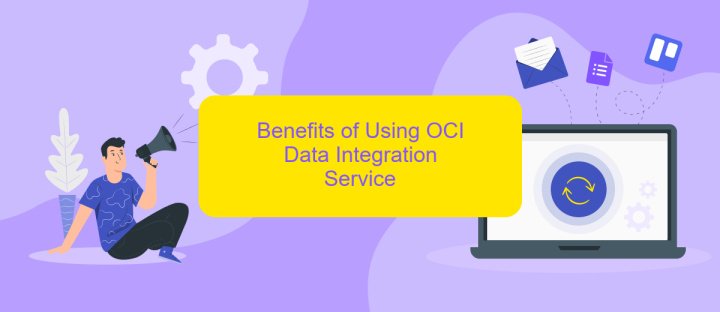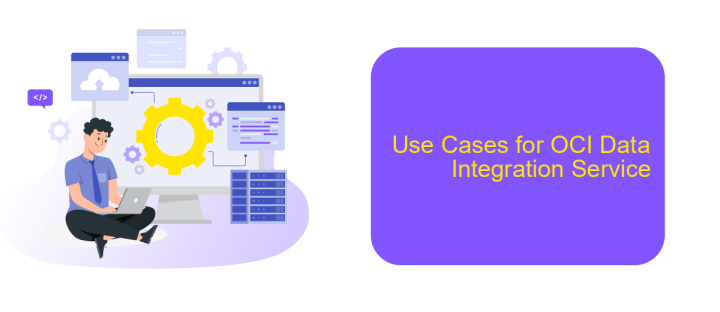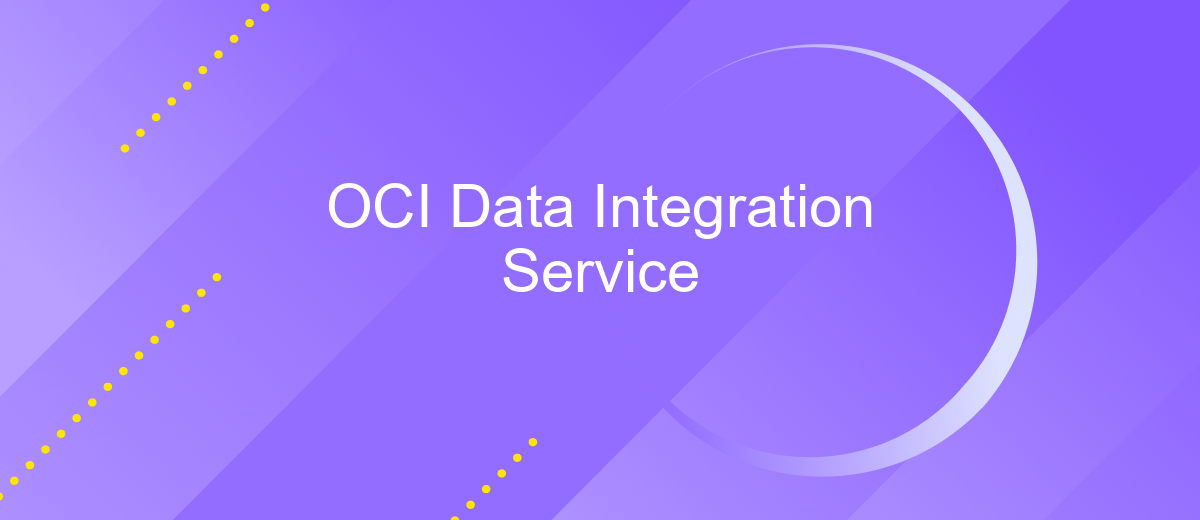OCI Data Integration Service
OCI Data Integration Service is a powerful tool designed to simplify and streamline data integration processes across diverse sources. It enables organizations to effortlessly manage, transform, and analyze data, ensuring seamless connectivity and enhanced data quality. With its intuitive interface and robust features, OCI Data Integration Service empowers businesses to unlock actionable insights and drive strategic decision-making.
Introduction
OCI Data Integration Service is a powerful and scalable solution designed to help organizations efficiently manage and transform their data. This service provides a comprehensive set of tools for data integration, enabling seamless data flow between various sources and destinations. Whether you need to move data to the cloud, synchronize databases, or perform complex data transformations, OCI Data Integration Service has you covered.
- Seamless integration with various data sources and destinations
- Advanced data transformation capabilities
- Scalable and reliable performance
- Comprehensive monitoring and management tools
- Support for real-time data processing
By leveraging OCI Data Integration Service, organizations can streamline their data workflows and ensure data consistency across systems. Additionally, integrating with third-party services like ApiX-Drive can further enhance your data integration capabilities by providing a user-friendly interface and automating data transfers between different applications. This combination of tools ensures that your data is always up-to-date and accessible, empowering you to make informed business decisions.
OCI Data Integration Service Features

OCI Data Integration Service offers a comprehensive suite of features designed to streamline data management and integration processes. Users can benefit from its intuitive drag-and-drop interface, which simplifies the creation of data workflows. The service supports a wide range of data sources, enabling seamless integration across different platforms. Furthermore, its robust data transformation capabilities allow for advanced data manipulation and cleansing, ensuring high-quality data output.
In addition to its core functionalities, OCI Data Integration Service provides extensive monitoring and logging features, which help users track and troubleshoot data workflows efficiently. The service also supports API integrations, making it compatible with external tools like ApiX-Drive. This compatibility allows users to automate data transfers and synchronize information between various applications effortlessly. Overall, OCI Data Integration Service stands out for its flexibility, scalability, and ease of use, making it an ideal choice for businesses looking to optimize their data integration processes.
Benefits of Using OCI Data Integration Service

OCI Data Integration Service offers a robust platform for managing and orchestrating data flows across various sources and targets. This service is designed to simplify complex data integration tasks, making it easier for businesses to consolidate and analyze their data efficiently.
- Scalability: The service can handle large volumes of data, scaling seamlessly as your data needs grow.
- Cost-Effective: Pay only for what you use, making it a budget-friendly option for businesses of all sizes.
- Security: Built-in security features ensure that your data is protected at all times.
- User-Friendly: Intuitive interface and comprehensive documentation make it accessible even for non-technical users.
- Integration: Easily integrates with other services such as ApiX-Drive to streamline the setup of complex data workflows.
By leveraging OCI Data Integration Service, organizations can achieve greater efficiency and accuracy in their data management processes. This service not only reduces the complexity of data integration but also ensures that businesses can make data-driven decisions quickly and effectively.
Use Cases for OCI Data Integration Service

OCI Data Integration Service is a versatile tool designed to streamline data processes within an organization. It enables businesses to seamlessly integrate, transform, and manage data from various sources, making it a critical asset for data-driven decision-making. This service supports a wide range of use cases, ensuring that organizations can efficiently handle their data integration needs.
One of the primary use cases for OCI Data Integration Service is data migration. Businesses can easily transfer data from legacy systems to modern cloud-based solutions, ensuring minimal disruption and maximum efficiency. Additionally, the service is ideal for data warehousing, allowing organizations to consolidate data from multiple sources into a single repository for more effective analysis and reporting.
- Data migration from legacy systems to cloud solutions
- Data warehousing for consolidated reporting
- Real-time data integration for up-to-date insights
- Data transformation to ensure consistency and accuracy
- Integration with third-party services like ApiX-Drive for enhanced functionality
Furthermore, OCI Data Integration Service can be integrated with tools like ApiX-Drive to automate and simplify the integration process. This allows businesses to connect various applications without extensive coding, making data management more accessible and efficient. By leveraging these capabilities, organizations can ensure that their data remains accurate, consistent, and readily available for decision-making.
- Automate the work of an online store or landing
- Empower through integration
- Don't spend money on programmers and integrators
- Save time by automating routine tasks
Getting Started with OCI Data Integration Service
Getting started with OCI Data Integration Service involves setting up your environment and understanding the core components. First, log in to your Oracle Cloud account and navigate to the OCI Data Integration Service. Create a new workspace where all your integration tasks will be managed. You will need to define data assets, which are the data sources and targets you plan to integrate. These can include databases, object storage, and other data repositories. Establishing connections to these data assets is crucial for seamless data flow.
Once your workspace and data assets are set up, you can start creating data flows. Data flows are the core of OCI Data Integration, allowing you to design and manage data pipelines. Utilize the intuitive drag-and-drop interface to map data transformations and orchestrate data movement. For more advanced integrations, consider using ApiX-Drive, a powerful tool that simplifies the process of connecting various applications and automating data workflows. With these steps, you are well on your way to leveraging OCI Data Integration Service for efficient data management.
FAQ
What is OCI Data Integration Service?
How does OCI Data Integration Service handle data security?
Can I automate data workflows using OCI Data Integration Service?
What are the key features of OCI Data Integration Service?
How can I monitor and manage my data integration tasks?
Strive to take your business to the next level, achieve your goals faster and more efficiently? Apix-Drive is your reliable assistant for these tasks. An online service and application connector will help you automate key business processes and get rid of the routine. You and your employees will free up time for important core tasks. Try Apix-Drive features for free to see the effectiveness of the online connector for yourself.


